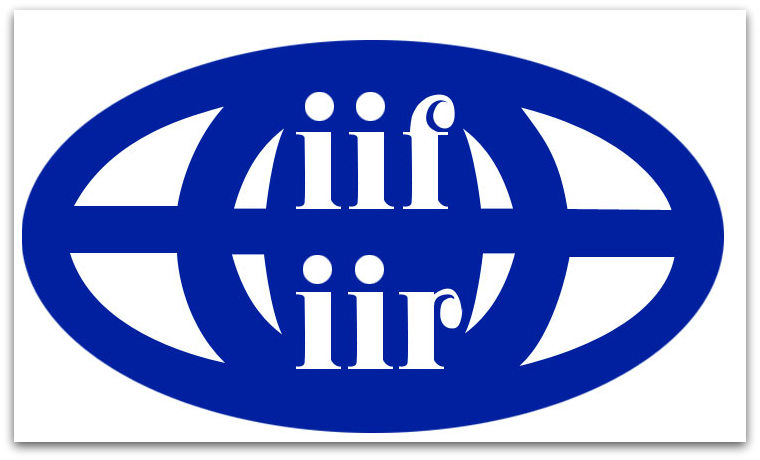Full factorial experiment to determine optimal technological modes in the production of enzymed canned pond fish
DOI: 10.17586/1606-4313-2025-24-1-75-81
UDC 664.951
Alekhina Anastasia V., Nazina Lyudmila I., Pegina Alla N., Kosenko Inna S., Kutsova A.E., Alekhin Dmitry A., Shahov S. V.
Keywords: pond fish, math modeling, preserves, ambassador, technological parameters, enzyme complex, cathepsin.
UDC 664.951
Full factorial experiment to determine optimal technological modes in the production of enzymed canned pond fish
For citation: Alekhina A.V., Nazina L.I., Pegina A.N., Kosenko I.S., Kutsova A.E., Alekhin D.A., Shakhov S.V. Full factorial experiment to determine optimal technological modes in the production of enzymed canned pond fish. Journal of International Academy of Refrigeration. 2025. No 1. p. 75-81. DOI: 10.17586/1606-4313-2025-24-1-75-81.
Abstract
In a modern market economy, for successful operation of enterprises it is necessary to produce high-quality and competitive products. Products must meet certain requirements determined by organoleptic characteristics, physico-chemical, microbiological indicators, nutritional and biological value. Modern conditions dictate the need to expand the range of highly prepared or semi-cooked products. In the modern processing industry, the use of enzyme preparations in food production is becoming increasingly important. This article solves the problem of determining rational conditions for the production of preserves based on pond fish with the addition of the enzyme complex cathepsins, isolated from the entrails of fish, to increase the efficiency of technological processes, which will reduce the duration of salting and ensure quality indicators of preserved fish that meet consumer preferences. For the rational and maximum use of pond fish cutting products in the production of products for mass consumer demand with the possibility of adjusting the chemical composition, there is a need to decide on the selection of optimal values of technological regimes through the study of physicochemical and biochemical transformations of muscle tissue of pond fish during storage. In order to speed up the production of preserved pond fish, a concept has been developed for constructing and assessing the quality of a regression model based on mathematical planning and processing the results of an active experiment. As a result of the experiment, a regression equation was obtained and the most significant factors were determined - the content of the enzyme complex of cathepsis, raw materials and salting time, their mutual combination, affecting the response parameter – the acidity of the fish. Diagrams were constructed of the dependence of the salt content and pH value of fish on the content of cathepsins. The use of a full-factorial experiment when salting pond fish with the addition of cathepsin with specified technological properties made it possible to determine the degree of influence of quantitative factors on the pH values and salt content in the product.
Abstract
In a modern market economy, for successful operation of enterprises it is necessary to produce high-quality and competitive products. Products must meet certain requirements determined by organoleptic characteristics, physico-chemical, microbiological indicators, nutritional and biological value. Modern conditions dictate the need to expand the range of highly prepared or semi-cooked products. In the modern processing industry, the use of enzyme preparations in food production is becoming increasingly important. This article solves the problem of determining rational conditions for the production of preserves based on pond fish with the addition of the enzyme complex cathepsins, isolated from the entrails of fish, to increase the efficiency of technological processes, which will reduce the duration of salting and ensure quality indicators of preserved fish that meet consumer preferences. For the rational and maximum use of pond fish cutting products in the production of products for mass consumer demand with the possibility of adjusting the chemical composition, there is a need to decide on the selection of optimal values of technological regimes through the study of physicochemical and biochemical transformations of muscle tissue of pond fish during storage. In order to speed up the production of preserved pond fish, a concept has been developed for constructing and assessing the quality of a regression model based on mathematical planning and processing the results of an active experiment. As a result of the experiment, a regression equation was obtained and the most significant factors were determined - the content of the enzyme complex of cathepsis, raw materials and salting time, their mutual combination, affecting the response parameter – the acidity of the fish. Diagrams were constructed of the dependence of the salt content and pH value of fish on the content of cathepsins. The use of a full-factorial experiment when salting pond fish with the addition of cathepsin with specified technological properties made it possible to determine the degree of influence of quantitative factors on the pH values and salt content in the product.
Keywords: pond fish, math modeling, preserves, ambassador, technological parameters, enzyme complex, cathepsin.












